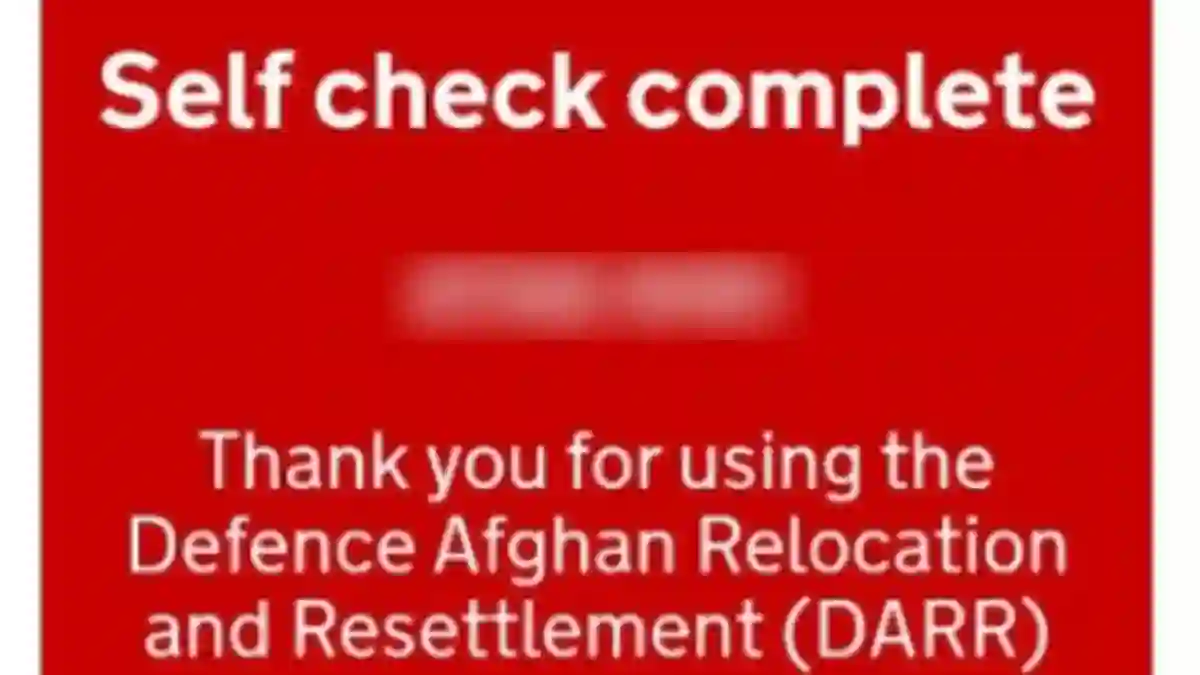When Afghans who worked with the UK government try to check if their personal information was leaked online, many are being arrested — a shocking turn that’s putting vulnerable people directly in the Taliban’s crosshairs.
The leaked dataset, which includes details of those who applied for the Afghan Relocation and Assistance Policy (ARAP), has led to a dangerous crackdown in Afghanistan.
Former Special Forces Among Those Detained While Checking Their Data
At least five Afghans, including ex-members of the elite Triples Special Forces, have reportedly been arrested while using internet cafes to verify if their details were compromised.
Many Afghans don’t have access to Wi-Fi at home, so they rely on cafes in cities and towns — exactly where Taliban operatives are stepping up surveillance.
Ministry of Defence Sends Apology but Fallout Continues
The UK Ministry of Defence (MOD) apologized in an email to those affected by the leak, sending a second message with a link to confirm whether their information appeared in the breach.
Those whose data was compromised saw a red alert on the website, while others saw a green confirmation.
However, this well-intentioned check has backfired, effectively exposing these individuals to Taliban forces watching internet cafes closely.
British lawyers and campaigners are urgently warning Afghans in hiding to avoid these risky locations.
Personal Stories Highlight the Danger
Wazir, a former frontline interpreter who worked five years with UK forces, shared his fears.
His own details, along with his family’s, were on the leaked list.
While he managed to check his status safely at home, he knows many others have no choice but to risk their safety in public cafes.
“The Taliban have tech from China to track our phones,” Wazir said.
“We’re terrified that data entrusted to Britain is now being used against us.”
Since the leak, he’s moved his family multiple times to avoid capture.
Taliban Denies Leaked Data but Claims They Already Have It
In a rare statement, the Taliban neither confirmed nor denied possessing the leaked dataset but claimed they already had biometric and personal information of those who worked for UK and US forces, left behind during the chaotic 2021 withdrawal.
Tragically, reports indicate that at least ten former Afghan forces members, possibly those who aided the West, have been assassinated near the borders with Iran and Pakistan since the leak surfaced.
MOD’s Response and Ongoing Evacuation Efforts
The Ministry of Defence referenced an independent Rimmer Review that concluded merely being on the leaked spreadsheet probably wasn’t the sole reason for targeting.
The review also noted that the Taliban already had access to a lot of sensitive data.
Despite this, the fallout has been severe.
The UK government quietly launched one of the largest evacuation operations in recent history, secretly flying nearly 19,000 Afghans to safety—many of whom live temporarily in MOD housing or hotels.
Hidden Costs and Legal Battles Looming
While thousands have been rescued, over 70,000 Afghans remain trapped in the country, vulnerable to Taliban reprisals.
Meanwhile, many of those rescued are now reportedly preparing to sue the UK government for the data leak, potentially adding a staggering £1 billion in compensation claims to the already massive cost of the rescue mission.
What Happens Next?
This unfolding crisis highlights the grave consequences of data breaches on vulnerable populations.
With lives at stake and thousands still in danger, questions remain about accountability and how best to protect those who risked everything to help the UK.
